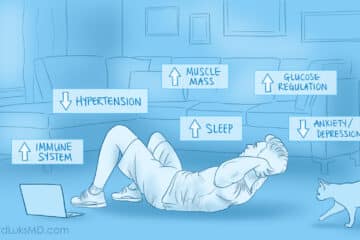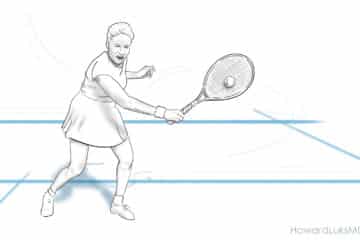
Osteoarthritis of the knee is responsible for a significant amount of suffering and disability. Millions of Americans suffer from Osteoarthritis. Osteoarthritis is simply the loss of cartilage from the end of your bones. That cartilage was the cushioning present in your knee and allowed the bones to move upon one another without any friction. When the cartilage is lost, the smooth gliding of the joint is lost, the cushioning is lost — and the end result is pain and significant disability.
When faced with a diagnosis of osteoarthritis of the knee many people are unaware of the options available to them.
- Oral anti-inflammatories such as Advil, Motrin, Aleve, etc. can be effective, but check with your doctor to be sure you can safely take these medications.
- Physical therapy
- Braces: Certain braces can be utilized to minimize the stress on the arthritic portion of your knee.
- Cane: Most of you HATE the idea of using a cane :-( . But it is an effective option in minimizing your pain.
- Injections:
- Cortisone, which is a potent anti-inflammatory, it will result in a decrease in swelling, inflammation and pain.
- “Gel” Injections or Visco-supplementation: This involves the injection of Hyaluronic acid into your joints. This is a naturally occurring substance found in normal knees, that arthritic knees produce less of. By injecting these compounds back into your knee, the result is usually less pain, less inflammation and an improved quality of life. Many companies make this compound and the most commonly utilized are Orthovisc, Synvisc, Supartz, Hyalgan or Euflexxa.
- PRP or Platelet Rich Plasma. This involves the injection of a sample of your own blood (which has been treated to concentrate the “healing’ chemicals and cells in your body) into your knee. As recent as 2013, papers have been published in the scientific literature showing that PRP injections are an effective option for the knee arthritis sufferer.
- Arthroscopy??? For severe arthritis, an arthroscopy will most likely not offer any long-term benefit. In mild cases of arthritis, with a meniscus tear, an arthroscopy might improve your symptoms — but your arthritis will continue to progress.
- Joint Replacement surgery
Do you suffer from arthritis of the knee?
Are you ready to talk about the options available ?
Give us a call … 914-789-2735 — Let’s talk.
Do you have questions regarding an Orthopedic injury or longevity?
Do you want to talk to an expert who can listen to you for 45-60 minutes and explain the options in detail?
Dr. Howard Luks offers remote guidance sessions to review your X-ray or MRI images and explain your options.
Dr. Luks has also received hundreds of requests for educational sessions on the topics discussed in his book, Longevity Simplified.













Merari
Hi Dr. Luks,
I have osteoarthritis for about 8 months now. The swelling has never ceased and I have undergone lubricant/cortisone shots, as well as vitamins/medication for relief. None of these options have worked for me. My orthopedic doctor is adamant about avoiding surgery, due to my age, 40, and I also am looking to avoid surgery right now. I am not sure if this is common, but putting pressure and walking in general gives me an extreme amount of pain an discomfort. I heard about the geniculate artery procedure. Do you know of any doctors in the NYC area performing this procedure? Are you performing this procedure in your office? Any advice would be great!
Good morning…
Our institution has been offering selective genicular artery embolization for a few years now. I have a post on it here.
Richard Somma
Hello Dr Luks,
I was impressed with all the easily understandable information on your website and have a few questions regarding my partial meniscus tear in my left knee. I am a 60 year old active man . According to the MRI and my orthopedic surgeon I have a ‘new radial and horizontal tear posterior horn medial meniscus’. He calls it a partial tear and because it is not large recommends a partial meniscectomy, and does not plan on trying to repair it, just remove it. I understand that once any meniscus is removed the joint becomes less stable and arthritis [ which I have some] increases. I am considering other options including stem cell injections, and repair rather than removal of meniscus. You had written that repair should be the first option if possible., but you cant know for sure until you start the arthroscopy and look at it . Would looking at the MRI disc help to tell you if it is repairable or not before arthroscopy? My knee was injured last june 2016, [ I have that MRI also] but after a couple of weeks or less I was able to resume jogging and had no problems until I stood a month ago [ july 2017] up after squatting down in the garden and soreness and swelling ensued which continues.
Richard..
Actually … most all of the recent literature suggests physical therapy in lieu of surgery. Most degenerative meniscus tears in people > 50 do not require surgery. If for some reason yours does, then repair is preferable. Horizontal tears have been found to heal in many circumstances. Radial tears can heal in younger patients. Stem cells really haven’t been proven to be of benefit … but might increase successful healing rate after suturing the tear.
I can not offer specific treatment or medical advice. This should be thought of as educational information to help foster a more in depth conversation with you and your doctors.
Good luck